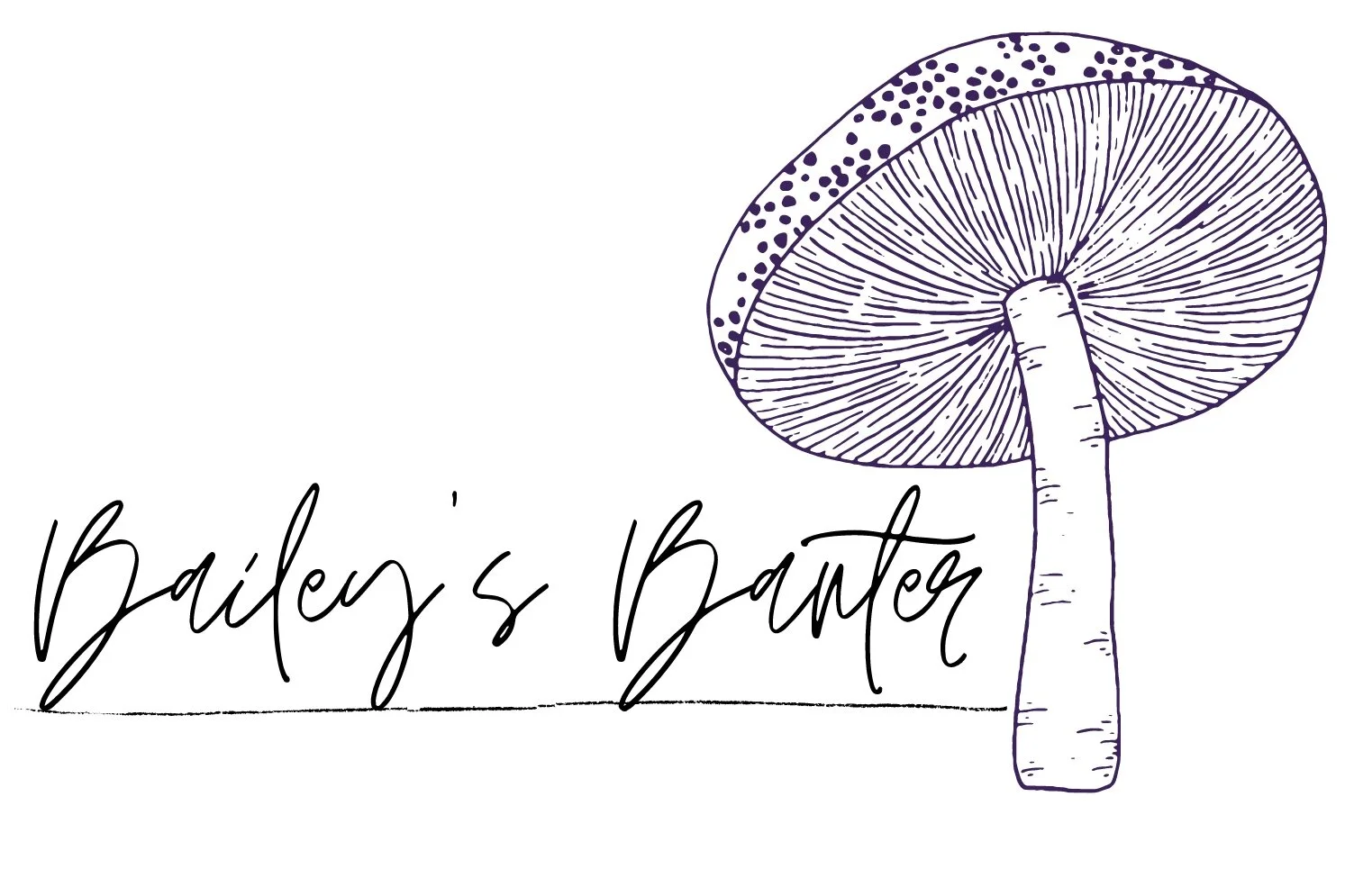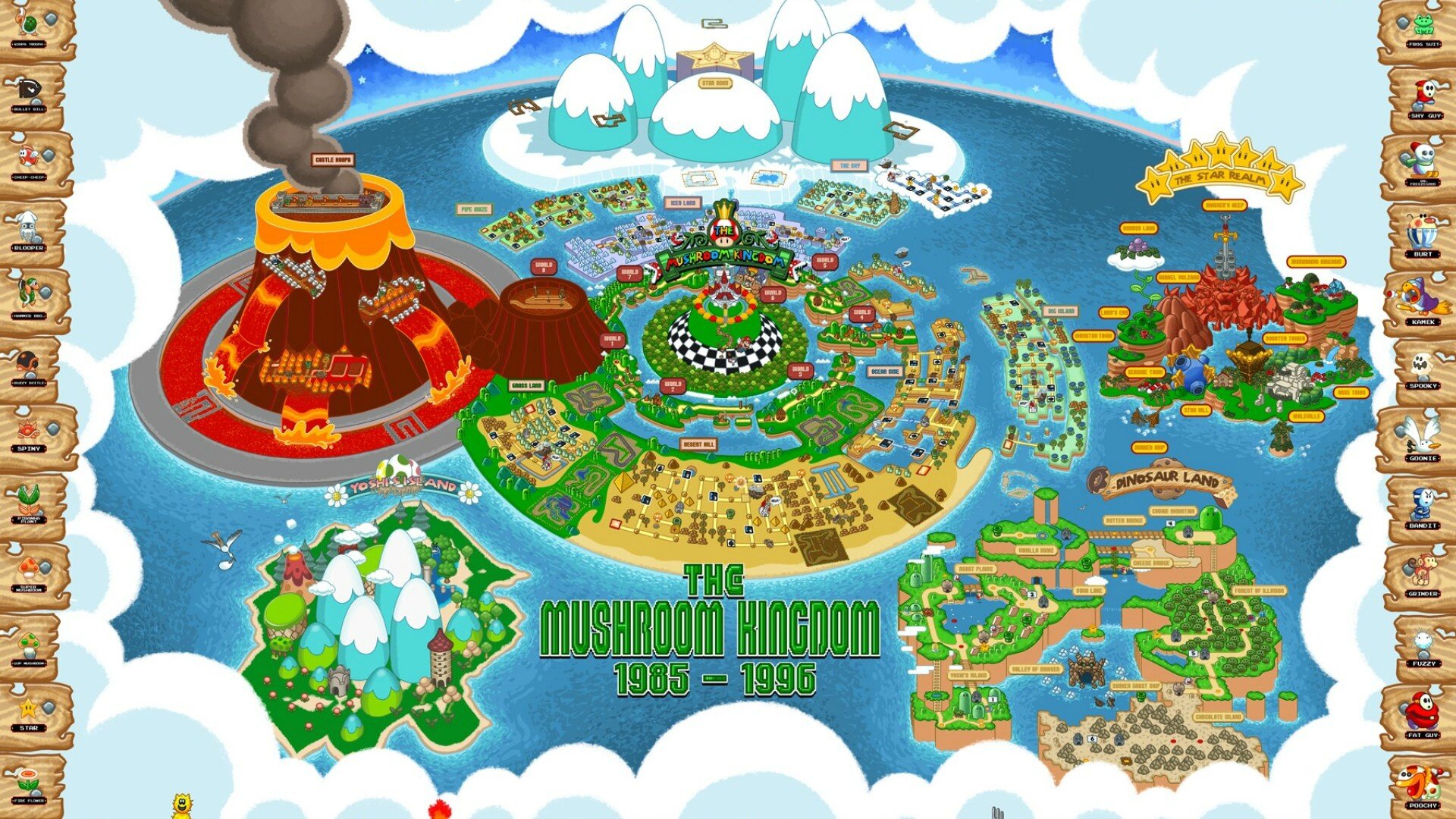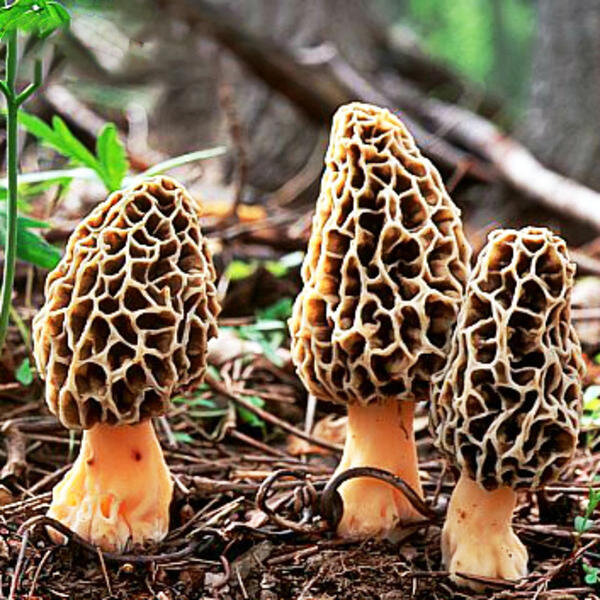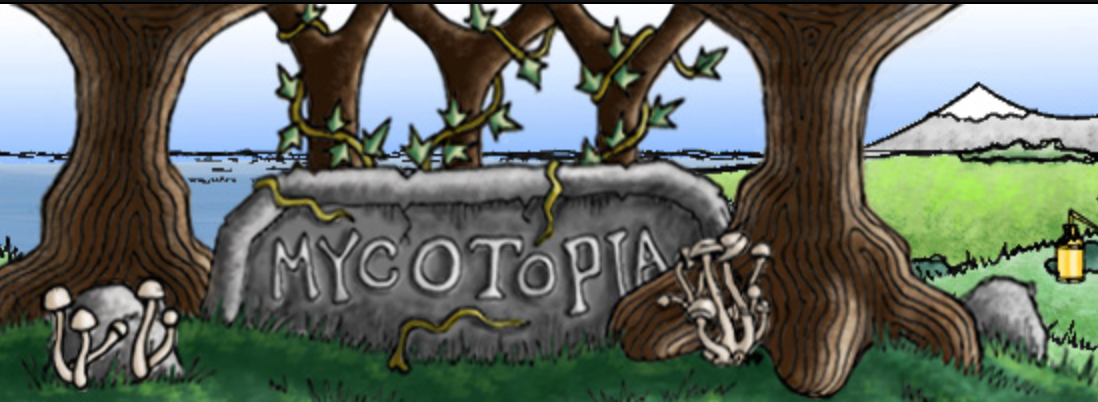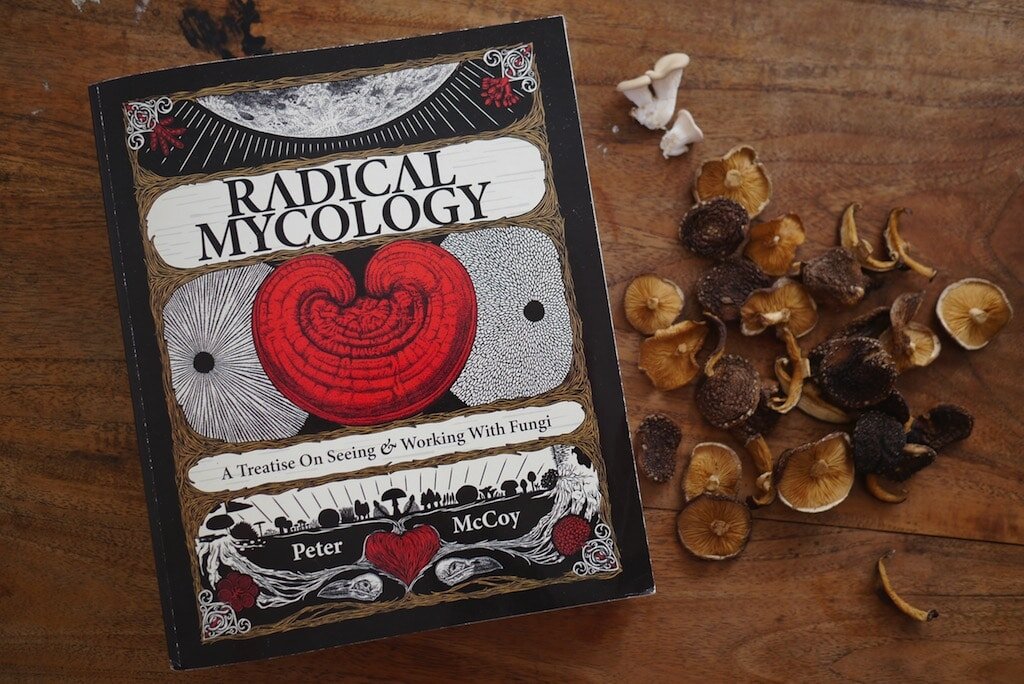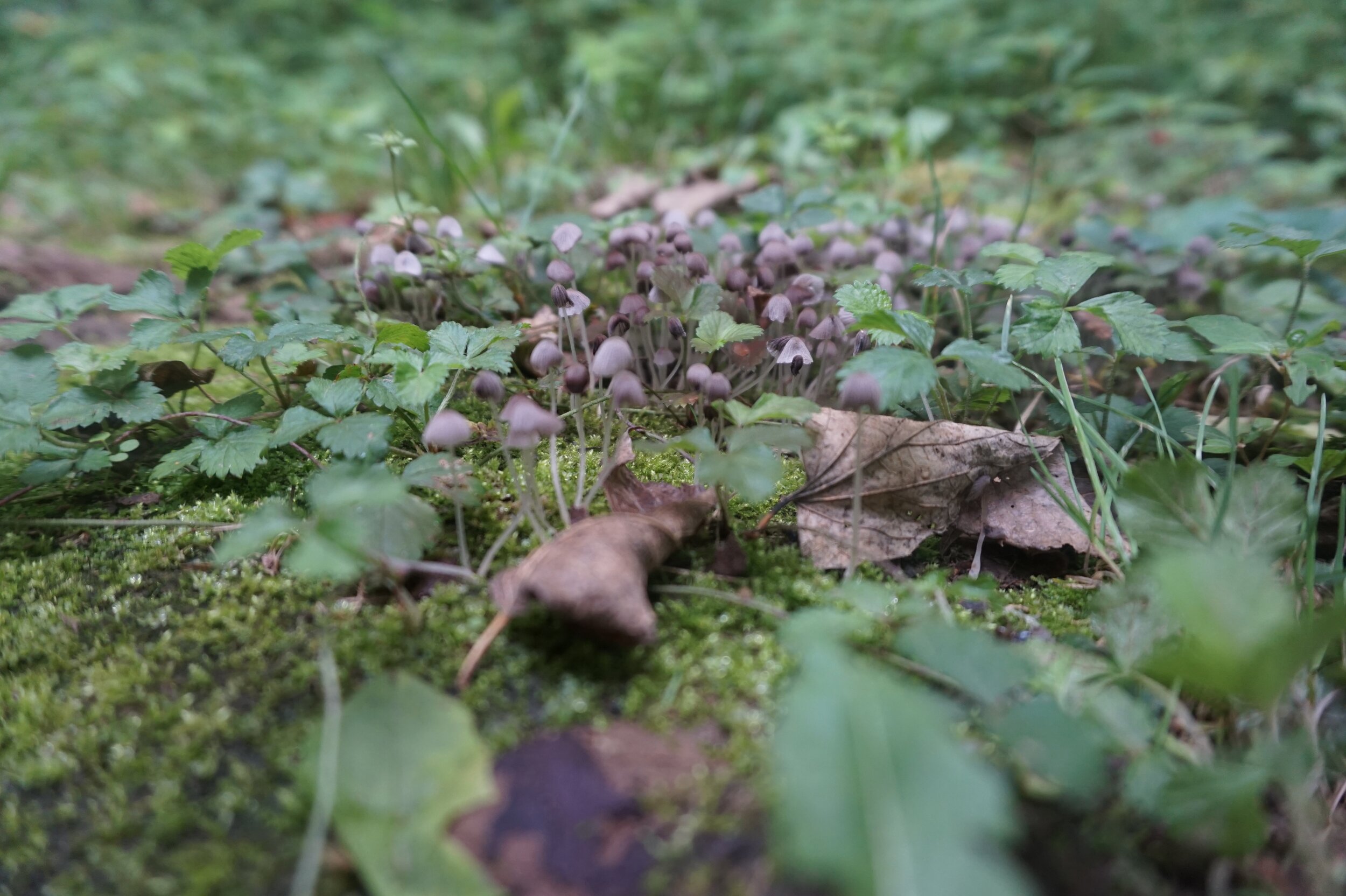5 random words round 2: Kombucha
To begin- I would like to point out what I had written in my notes months ago (when I originally planned on posting this… my motivation said otherwise) when it came to arsenic (the original word I was supposed to look up) I wrote,
“Arsenic is way too complex, what am I? an astrophysicist?”
Which -
1. I cant even spell astrophysicist? Is that correct? I don’t know…
2. I think I read 1 single source and decided it was way too much
3. what does astrophysics have to do with fungus or kombucha? could not tell you.
I wanted to show how it was related to fungus and dive into the deep dark history and the present uses and where it grows naturally and then I thought- this sounds like a great article of itself! So, someday (hopefully in the near future) I will dive a bit deeper into arsenic, for now you get the second best 'item' relating to fungus: Kombucha!
You may have heard all the rage about kombucha- possibly even tried it, and are probably wondering how on earth does this relate to fungus?
a really good picture of a SCOBY
What I would like to imagine: several jars sit behind me, fermenting, while fresh fruits and spices wait their entry to the tasty drink. I’m sipping on a homemade batch as I type, wearing my mushrooms shirt, listening to nature sounds in the background and truly fulfilling the mushroom enthusiast role I present.
What’s ACTUALLY happening: none of that…. I tried Kombucha ONCE and it tasted so gross that I swore to never try it again…
Using 3 sources:
trusty ol’ web MD
A blog written by Erika named “Don’t eat the pseudoscience” (highly recommend if this interests you!)
The OG- Wikipedia,
I compiled a general summary including a definition, brief history, explanation of the process, breakdown of the science words, some health benefits, and why those benefits happen!
What is kombucha?
“fizzy sweet-and-sour drink made with tea” often referred to as a fitness drink or a fruity, effervescent mixture of ingredients. Those ingredients include: yeast, sugar, black or green tea, and a mixture of flavor including spices and fruit juice.
Kombucha is made through fermentation which produces bacteria that is beneficial to our gut health- resulting in multiple health benefits.
Alternative names include: tea fungus, mushroom tea, and Manchuria mushroom.
If you’re wondering why this has not mentioned kelp or anything regarding the ocean- you may be confused as Wikipedia believed I was. To clarify we are talking about KOMBUCHA not KOMBU-CHA, an east Asian tea made from kelp. Just wanted to clear the air before we continued!
LOL at the similarities amirite?
Where did it come from?
From what I read there is debate about where this all began – 3 main countries are listed; China, Japan, and Russia. It’s beginning is believed to date back 2000 years, starting in Manchuria China- giving it the alternative name- Manchuria mushroom. Web MD filled me in that, “this ‘divine Che’ was prized during the Tsin dynasty for its detoxifying and energizing properties.” Also mentioned it most likely got it’s name from “Kombu” a physician who brought the tea fungus from China to Japan. This is where the debate lies because the ingredient sugar makes it “more modern,” although there is evidence it can be made without sugar. So- hot take, what do you think the truth is? As the majority of sites say, It then made its way to Russia through trade and in the early 20th century found its place in Europe. It was in the 1960’s that a Swiss scientist reported that “drinking kombucha is as beneficial as eating yogurt!” Which explains the health hype in America. Wellness drinks has a convincing storyline as to why exactly it was traded and so popular, you can find those stories along with some pretty convincing arguments as to why you should buy THEIR exact SCOBYs. (more on SCOBYs later)
Let’s back up a bit because this is where it gets a bit intense.
Although not recommended due to health concerns and difficult technique it is termed to be “sketchy” to ferment at home. If you think about it- you’re growing bacteria on something you’re going to consume. This COULD lead to harmful bacteria or mold taking over if contaminated during the process. You’ll know it’s a bad batch if you run into issues such as allergic reactions, stomach upset, and in one singular case in the 1990’s, DEATH. But, if done as sterile as possible and… correctly, fermenting kombucha at home is possible! The process is this: First, mix ingredients, then set aside for a week or more, lastly- enjoy! It sounds easy, but there’s actually a ton of science going on that’s super neat! Timing of fermentation is dependent on the taste you are wanting:
short fermentation leads to a lighter, ‘fruitier’ taste (if you want to call it that…)
letting it ferment longer leads to a harder, more vinegar-like flavor. Eventually resulting in a slightly alcoholic drink!
(AYO FERMENTATION COMING IN CLUTCH!)
Science:
The important factors in this creation are the fermentation process and the fungus, Saccharomyces cerevisiae, otherwise known as YEAST. Yeast is responsible for fermentation, which is used to make kombucha, as well as beer, wine, bread, kimchi, yogurt and more! So, What is fermentation/ what is it doing? Wikipedia is way too extra when it says, “Fermentation is a metabolic process that produces chemical changes in organic substrates through the action of enzymes.”
If those words above went in one eye and out the other (get it, because you’re reading, not listening [in 1 ear out the other] ?) Here’s the simplified version google provided me; “Fermentation is the process in which a substance breaks down into a simpler substance.” Easy enough! The breaking down of these substances causes bacteria and acids to form. What you see physically, is a disc or film that forms on the surface of the liquid. This is the super important part of kombucha, specifically.
“Biochemistry says fermentation is the extraction of energy from carbs in the absence of oxygen. This science is also known as zymology”
ALERT! PARTY FACT! out of anything in this article you’re GOING TO WANT TO MEMORIZE THIS AND SHARE AT YOUR NEXT SOCIAL GATHERING TO SHOW HOW COOL AND EDUCATED YOU ARE!
The disc is called a SCOBY (symbiotic colony of bacteria and yeast) … (yum!) SCOBY's are the key- they can be purchased. (peep the ad in the earlier paragraphs- this is not a paid sponsorship with the website I found on the first page of google search… BTW ) or you can take one from kombucha you’ve already made and use it to ferment more kombucha! (another brilliant example of fungus sustaining itself! It is simply amazing!) Thankfully, the internet has found a large amount of alternative uses for SCOBYs including facemasks, hair treatments, smoothies, candy, pet food, compost, and crafts!
What is happening is the new “daughter” tea fungus that forms (SCOBY) pushes the “mother” or original fungus further down submerging it into the liquid.
While the family of organisms remains the same, Erika with her psuedoscience blog found that, “exact microbial composition varies depending on the source of the inoculum-” but don’t worry… they’re guaranteed to contain the bacteria, Acetobacter, including Acetobacter xylinium.
The SCOBY (commonly called "a mother" or "mushroom" (floats on top of the tea) consists of acidophilic yeast and acetic acid bacteria (lactic acid, a probiotic- and a healthy dose of B vitamins!)
This is why there are claims of many health benefits associated with kombucha- although most have been found in animal models only and have little scientific evidence to back them up.
I DID find these explanations of the health benefits which I found extremely interesting.
Health Benefits:
1. Digestive aid: the creation of probiotics helps with diarrhea and IBS- probiotics may even strengthen your immune system
2. Speaking of immune system, due to its acetic acid and catechin content- kombucha has been showed to be effective in inhibiting both gram positive and gram negative pathogenic microorganisms such as streptococcus (G+) or E. Coli (G-).
3. Rids body of toxins: this is due to the glucuronide complex which can then be speedily excreted, hence speeding the elimination of harmful compounds from the body
4. Boosts energy, did not find anything on this, although in cultural history of kombucha it was believed to be an immortality drink!
5. On that note- Glucuronic acid (found in kombucha) can also be turned into glucosamine- a beneficial substance associated with cartilage, collagen, and fluids related to treatment of osteoarthritis.
6. Weight loss: When made with green tea it can aid in weight lose due to the bioactive compounds POLYPHENOLS which act as antioxidants- protecting cells from damage. It may also help burn fat, which in turn protects form heart disease. Animal studies have shown the drink lowers cholesterol and blood sugar levels, but the same effects have not been documented in humans.
7. EVEN SAYS IT CAN prevent cancer- although there is not a lot of evidence to support these claims
To synopsosize:
If you’re looking for the hot gossip on kombucha, I’d highly recommend checking out Wikipedia- it has more information that you ever wanted to KNOW about the fungus tea.
ANOTHER PARTY FACT: PAY ATTENTION TO THIS GUY: Wikipedia says, “kombucha culture- when dried, becomes a leather-like textile known as "microbial cellulose" that can be molded into forms to create seamless clothing (hello gymshark seamless leggings?) Using different broth media (coffee, black tea, and green tea) results in different textile colors, feel and texture! That is pretty cool! Fungus is the future.
Now that you have all the deets regarding kombucha, who’s scientific name is; Medsomyces gisevii. I hope you feel encouraged to go out and try it, or at least share your fun knowledge to your best friend, partner, parents, or pets. Thank you so much for reading, and here’s to the next random word!
